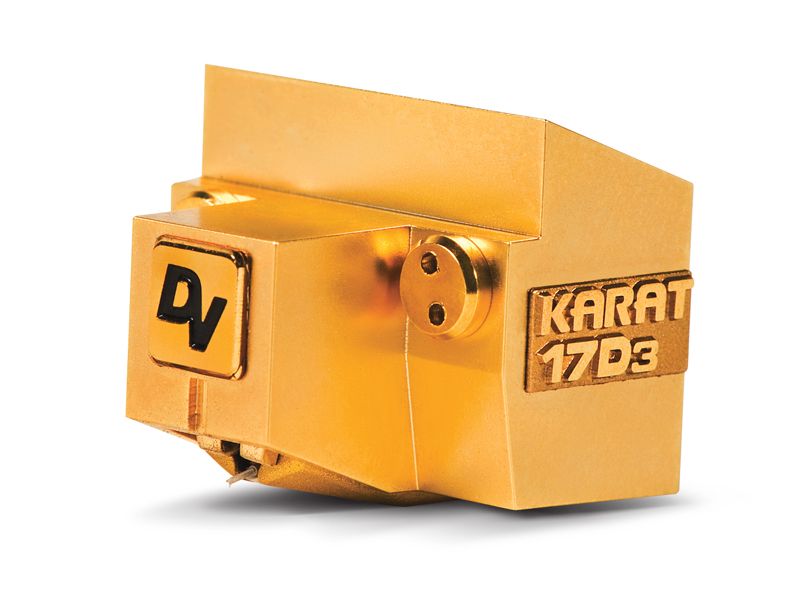TechRadar Verdict
If you want to know what we mean by pace and timing, then listen to this cartridge
Pros
- +
One of the most thrilling-sounding cartridges on the market
- +
Great build quality
Cons
- -
Tiny cantilever makes set up a bit of an eye strain
Why you can trust TechRadar
Long before DVD-Audio and SACD came along with a bandwidth that trebled what was available from CD, a Japanese engineer figured out a way of achieving this with a moving coil cartridge. The Dynavector 17D3 has the shortest cantilever in the needle world at a specified 1.7mm long.
Not only is it tiny, but it's made of diamond and it's this combination of stiffness and size which gives it a high-frequency response that reaches the sky, or 100kHz, whichever comes first.
More output
As well as the tiny diamond cantilever the 17D3 has an equally small coil assembly and this contributed to an output of 0.2mV in 17D2 form, which is pretty low even by MC standards.
For this incarnation, Dynavector has improved the design of the magnetic yoke and this change in combination with a flux damping mechanism and 'softened magnetism' has resulted in a 50 per cent increase in output to 0.3mV. A factor which should make it easier to accommodate for real-world phono stages.
The stylus on the end of the tiny cantilever is a 0.06mm square, nude diamond with a Micro Ridge profile. This is then bonded into a hole cut by laser in the diamond cantilever. All of the engineering – the magnet system, suspension, coils etc, are built into the nose of the cartridge body, the wider part being there primarily to provide fixing points for a conventional tonearm.
While having a very short and stiff cantilever has its mechanical advantages, it does place extra strain on the supporting tonearm. The 17D3 has a tendency to send more energy into the arm and is, therefore, more sensitive to this element than most. It is known to benefit from front end damping and has a reputation for working well in the damping trough-equipped Townshend Rock turntable.
Sign up for breaking news, reviews, opinion, top tech deals, and more.
Part metal jacket
Build quality is very high, as you would expect from Japanese companies, while the body design looks surprisingly modern, considering it hasn't changed for over thirty years.
And while some contemporary cartridges at this price have all-metal bodies, the 17D3 has a metal shell with a plastic mounting for the various elements within and threaded inserts. This approach offers a useful degree of damping and reduces the amount of energy being fed into the arm, but you need to be careful about how much torque you apply to the bolts.
Competition at this price includes the Goldring Legacy, as well as the most affordable model in the van den Hul range: the DDT II Special. Both are very fine cartridges, but not quite as thrill-powered as this Dynavector.
Thrill power
In the substantial clasp of an SME V arm, onboard a Model 20A turntable, the 17D3 delivers a highly detailed and fast-paced result that is extremely exciting. Once warmed up this calms down a bit, but it remains incorrigibly upbeat and enthusiastic.
This has an infectious effect on the listener and is guaranteed to encourage the seeking out of your favourite albums. Detail is phenomenal and results at low listening levels are particularly rewarding.
As we had a Townshend Rock V on hand it seemed churlish not to set it up on its Rega arm, where the damping provided by the trough calms some of the excesses and lets the remarkable precision and energy of the Dynavector shine through.
Top tip
The 17D3 gets very close to the results achieved with MCs at twice the price. Some may prefer a richer balance, but few could resist the allure of the speed on offer which is truly world-class.
The bass is taut and extremely articulate and we genuinely don't think that there are many sub-£1,000 cartridges that can touch it in terms of sheer musicality and resolution of detail.
In fact, all you need is a turntable that can take the energy.
Follow TechRadar Reviews on Twitter: http://twitter.com/techradarreview
